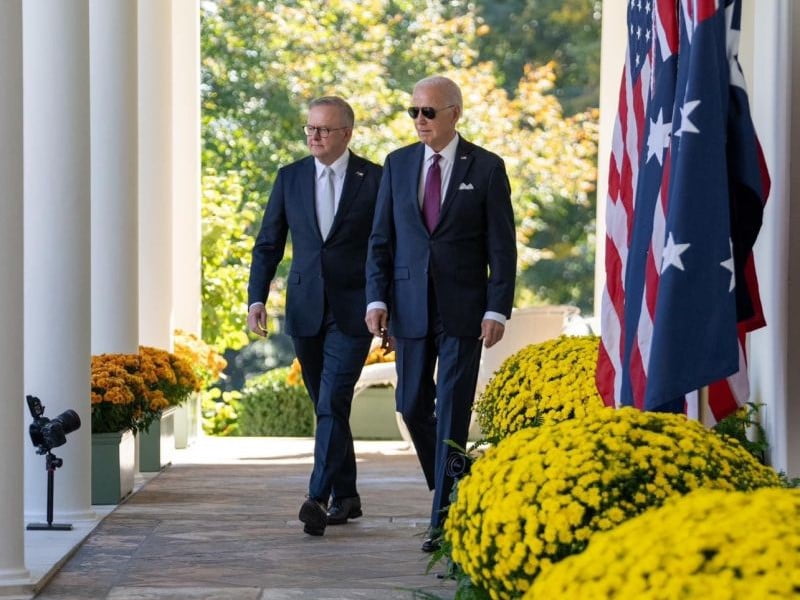Innovation has become the fourth pillar in Australia’s alliance with the United States, with the two nations announcing plans to work more closely on science and critical technologies.
The new Innovation Alliance will see the Australia and the US cooperate on new initiatives in science and critical technologies, according to a joint statement.
It will include a focus on collaboration in the space sector, with the two nations due to sign a Technology Safeguards Agreement tomorrow, which was negotiated through the Australian Space Agency.
This will create a legal and technical framework enabling the use of “sensitive US space launch technology and data in Australia consistent with our shared non-proliferation goals”.
Innovation now stands alongside the other three focus areas of the alliance, which are economic, defence, and climate and clean energy cooperation.

Climate and clean energy was established as the third pillar of the alliance in May, when the Critical Minerals and Clean Energy Transformation Compact was signed by Prime Minister Anthony Albanese and US President Joe Biden.
Expanding on the two nations’ climate and clean energy relationship, an “Australia and US Clean Energy Industry Council, comprised of business and public finance leaders, to advise government on clean energy industry development and cooperation” has also been established.
The two leaders also announced that the Australian National University had signed a memorandum of understanding with the Los Alamos National Laboratory to drive research collaborations in nuclear science.
They also applauded ongoing collaboration between CSIRO and the US National Science Foundation (NSF) through the NSF’s US$16.3 million (AU$25.9 million) Global Center’s initiative for climate and clean energy research and an AI partnership supported by a combined US$6.2 million (AU$9.9 million) in grants, which was announced in February.
In press conference at the White House, President Biden said the two leaders had discussed opportunities to deepen “cooperation in fields like biotechnology, advanced batteries, quantum computing, cybersecurity and a lot more”.
Mr Albanese said that “the President and I agree that innovation is vital to addressing the environmental challenge of climate change – and seizing the economic opportunities of clean energy”.
In a joint communique, the leaders also recommitted to “deepened cooperation on advanced capabilities”.
“We welcome the momentum and significant steps underway to streamline defence trade controls and information sharing between our nations, as part of our shared commitment to maximising the strategic and technological advantage of the Alliance and to maximise the full potential of AUKUS,” the communique reads.
“Australia acknowledges the US Administration’s significant steps in this regard, including the Biden Administration’s bold proposal to Congress that would transform export controls laws. Australia is also examining its export controls framework to streamline the flow of defence information and technology and is taking steps to realise this ambition.
“Collectively these actions are designed to enhance and expedite collaboration between and among AUKUS partners to help us maintain our capability edge, while strengthening our ability to protect the sensitive technologies that underpin our security. Furthermore, we reiterate our joint commitment to strengthening security standards to safeguard sensitive technology and information.”
Since touching down in the US earlier this week, Mr Albanese has announced several key initiatives, including Microsoft’s $5 billion Australian expansion and a $20 million assistance package for Ukraine consisting of locally developed tech.
Do you know more? Contact James Riley via Email.

